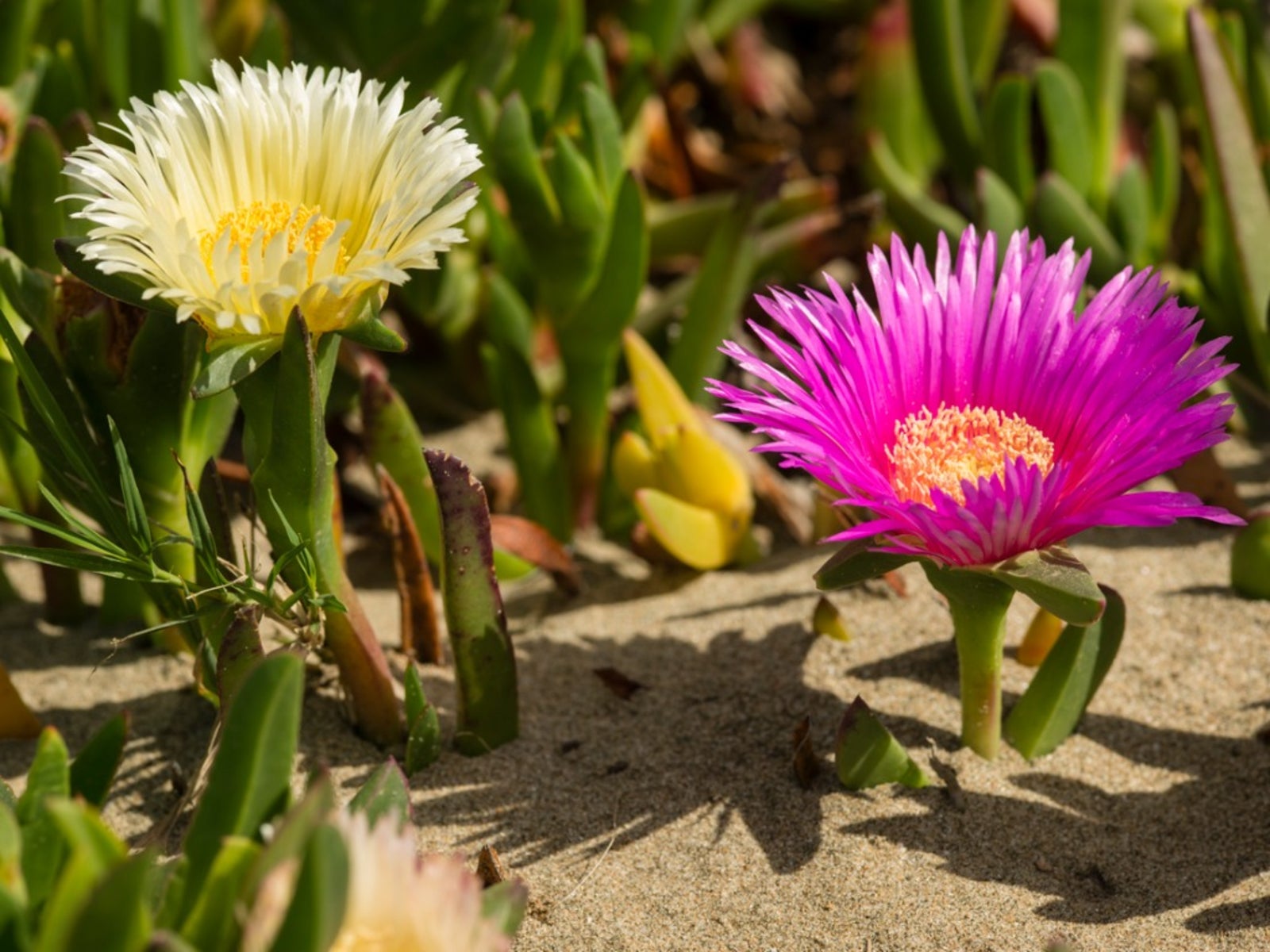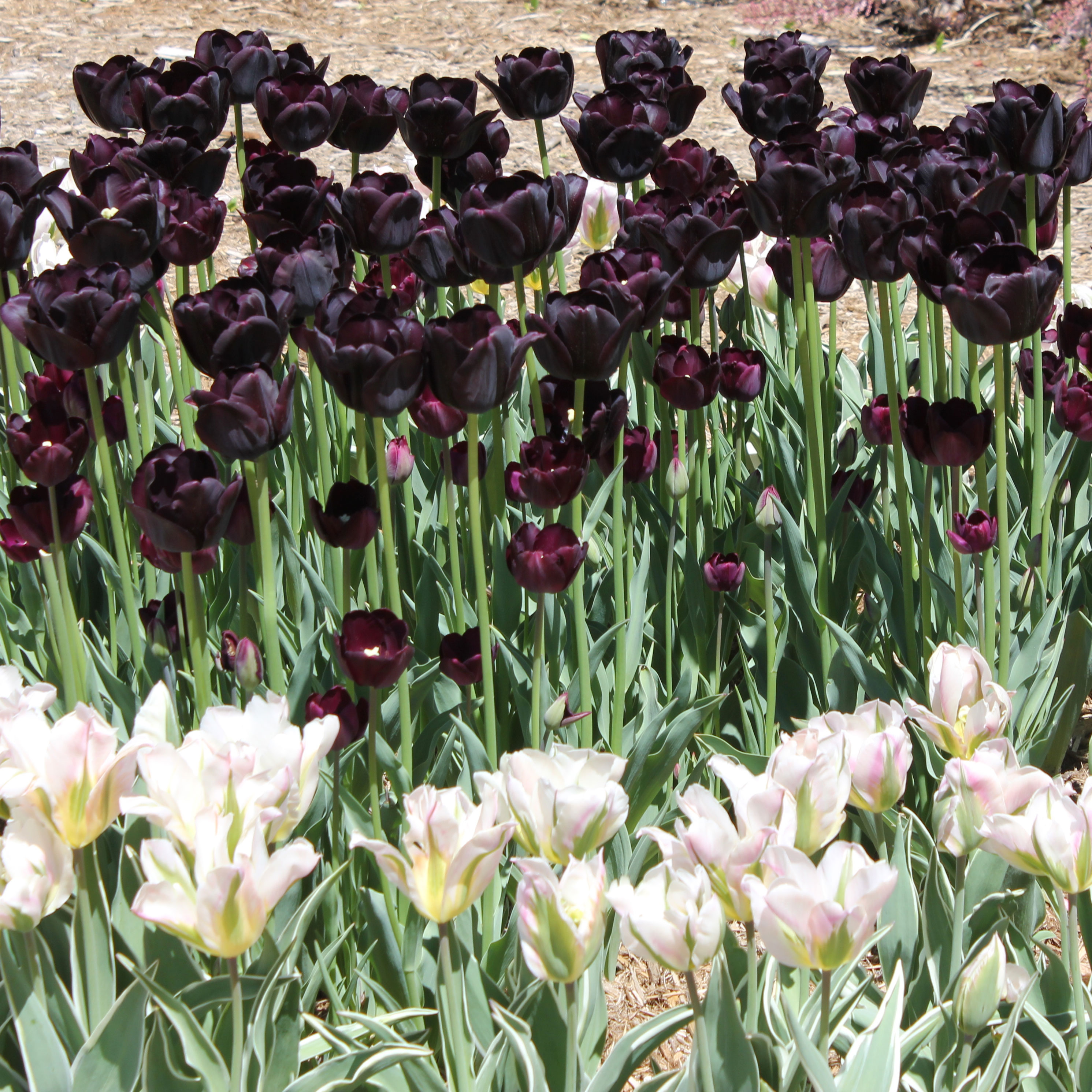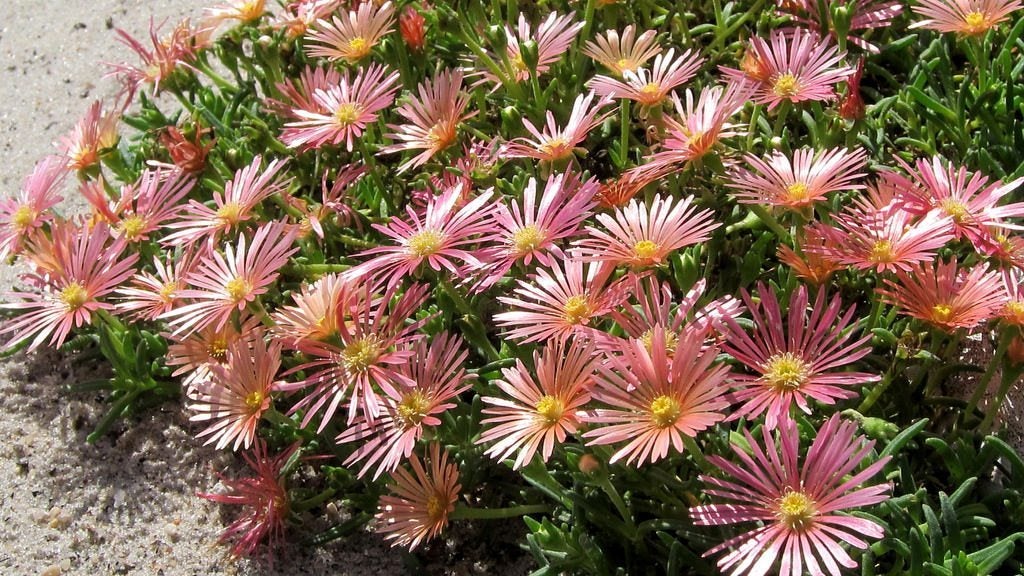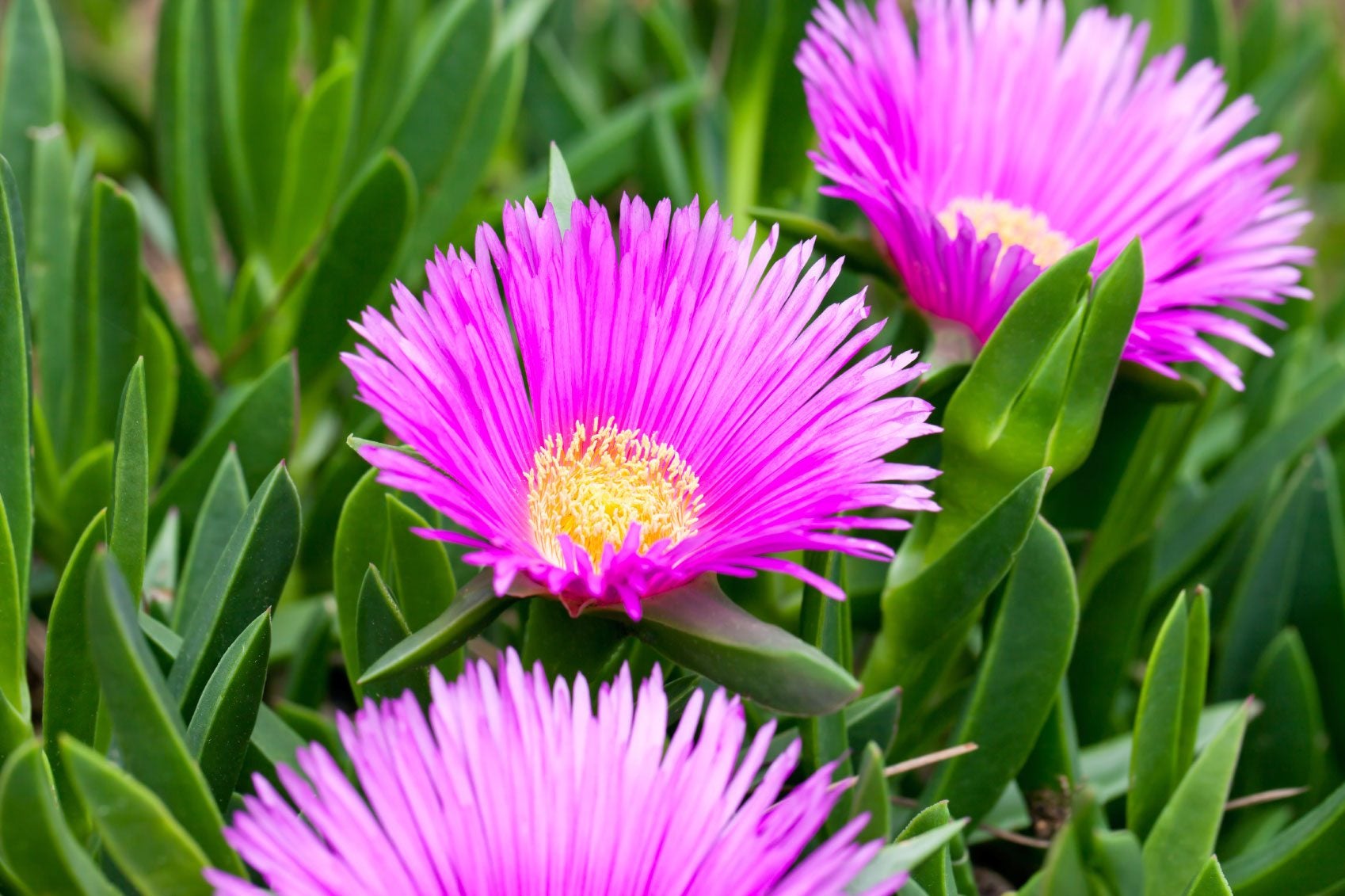Growing Hottentot Fig Flowers: Information About Hottentot Fig Ice Plant


I have seen hottentot fig ice plants spilling out of hanging containers, draped over rockeries, and delicately placed as groundcover. This super easy-to-grow plant has an invasive potential in areas such as southern California, where it is a coastal weed. In most gardens, however, the plant can be kept under control with little effort and hottentot fig flowers are a cheery, early season treat.
Is Hottentot Fig Invasive?
The hottentot fig ice plant (Carpobrotus edulis) was introduced from South Africa to California as a ground stabilizing plant. The spreading roots and groundcover nature of ice plant helped halt erosion on California's coastal dunes. However, the plant became so naturalized that it is now classified as a weed and requires careful management to prevent it from taking over native plant habitats. The hottentot fig flowers do not turn into any verifiable fruit and it's not related to the fig tree, so the reason for the “fig” in the name is not clear. What is clear is that the plant grows so easily and well in its new region that growing hottentot fig in USDA plant hardiness zones 9 to 11 is such a snap that it bears some consideration when used in wild erosion control.
Hottentot Fig Cultivation
Stem cutting is the fastest way to propagate this fast growing plant. Seeds are also available and you may start them indoors at least six weeks before the date of the last frost. Hottentot fig is a perennial plant in its chosen zones but also thrives as an annual in colder areas. The best temperature range for the succulent is between 40 and 100 degrees F. (4-38 C.), but some protection from the sun's scorching rays may be required in higher temperature ranges. Growing hottentot fig in planters prevents it from spreading in those areas where that is a concern. Freezing temperatures may cause the plant to die back, but it will re-sprout in spring in temperate areas. An important part of hottentot fig cultivation in areas where it is a problem plant is cutting back the plant in fall. This will keep it in a moderate habit, allow new leaves to burst forth, and prevent seeds from forming.
Hottentot Fig Care
Ice plants are notoriously un-fussy. As long as their soil drains well, the soil is allowed to dry out between watering and the plant receives pinching or pruning to keep it in shape, there is little more to be done. The only serious threats to the plant's health are spittle bugs and some root rots and stem rots. You can avoid the rot by minimizing overhead watering during periods in which the plant will not dry off before nightfall. The bugs will remove themselves if you spray the plant with a horticultural soap. Growing hottentot figs in containers is ideal, and you can overwinter them in temperate regions. Just bring the pot in and water it deeply. Cut back the plant and let it dry out and languish for the winter in a warm location. In March, resume regular watering and move the plant to a full light situation where it has some protection from burning rays. Gradually reintroduce the plant to temperatures outdoors until it can tolerate a full day outside.
Gardening tips, videos, info and more delivered right to your inbox!
Sign up for the Gardening Know How newsletter today and receive a free copy of our e-book "How to Grow Delicious Tomatoes".

Bonnie Grant is a professional landscaper with a Certification in Urban Gardening. She has been gardening and writing for 15 years. A former professional chef, she has a passion for edible landscaping.
-
 Create A Romantic Garden Straight Out Of Bridgerton: Regency Era Romance In Your Garden
Create A Romantic Garden Straight Out Of Bridgerton: Regency Era Romance In Your GardenTry some romantic garden ideas straight out of Bridgerton. Flowers and gardens in the Regency era were lush and charming and you can get the same look!
By Bonnie L. Grant
-
 Moody Blooms For Spring: 8 Types Of Black Flowers To Add Drama To Spring Displays
Moody Blooms For Spring: 8 Types Of Black Flowers To Add Drama To Spring DisplaysFrom midnight burgundies to inky violets, several types of black flowers can enrich and embolden a spring display. Try these brooding bloomers for a moody garden
By Tonya Barnett
-
 Delosperma Kelaidis Info: Learn About Delosperma ‘Mesa Verde’ Care
Delosperma Kelaidis Info: Learn About Delosperma ‘Mesa Verde’ CareIt is said that in 1998 botanists at the Denver Botanical Garden noticed a naturally occurring mutation of their ice plants. These salmon-pink flowering ice plants were patented and introduced as Delosperma kelaidis "Mesa Verde." Learn more here.
By Darcy Larum
-
 How To Grow An Ice Plant And Purple Ice Plant Care
How To Grow An Ice Plant And Purple Ice Plant CareLooking for a drought tolerant but lovely flower to fill in a troublesome dry area in your garden? You may want to try planting ice plants, which can add a bright splash of color to the garden. Learn more here.
By Heather Rhoades